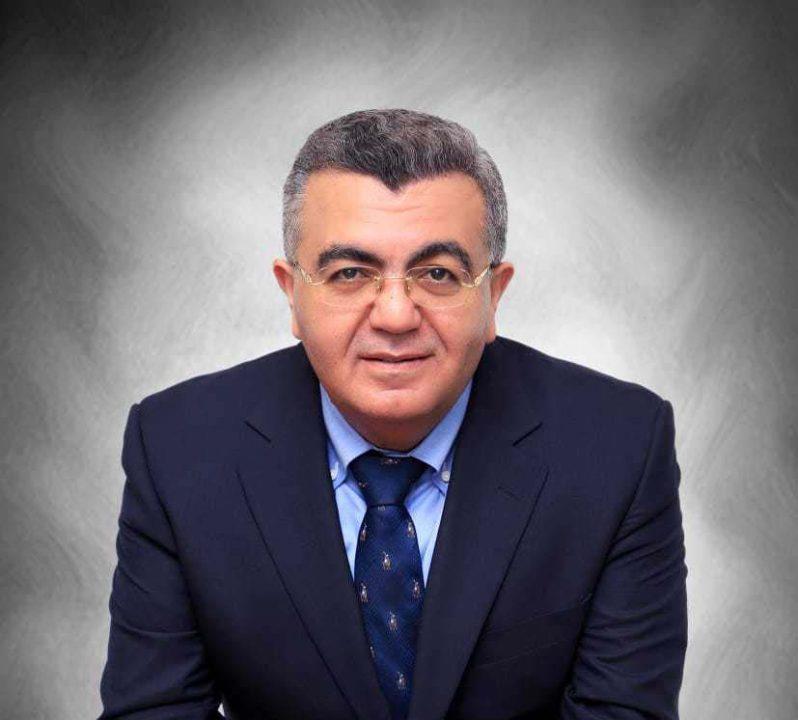
The Untold Story: British Intelligence's Role In The Overthrow Of The Assad Regime
Following the Assad regime's fall, many predicted widespread bloodshed, particularly among factionalized groups like“Ahrar al-Sham.” While it remains too early to form definitive conclusions, emerging trends suggest that the situation has been less violent than expected. This is surprising, considering there are no central forces maintaining order on the ground, with militias being the only stabilizing presence. Although Mohammad Jolani's pledge to integrate militias into a unified army holds potential, that army has been significantly weakened by Israeli airstrikes during celebrations of Syria's revolutionary victory. While some hope remains, numerous challenges persist, with the most significant being the formation of a new Syrian army post-integration of militias-a challenge already faced, with mixed results, by neighbouring Iraq.

Dr. Hatem Sadek
Governance remains a key question: Will Syria adopt a federal, confederal, or sectarian structure reminiscent of Lebanon's fragile model? Each option holds risks that could send Syria back into instability. The Kurdish minority faces new dangers from Turkey, which has attacked Kurdish cities in the north through proxies. This is a perplexing situation, as the Syrian Democratic Forces (SDF) are allied with the U.S., while Turkey, a NATO member, continues to target them, claiming links to the Kurdistan Workers' Party (PKK), deemed a terrorist organization by Ankara.
Since 2011, there has been a broad consensus on weakening Bashar al-Assad's regime without collapsing Syria entirely. This goal has been achieved, and recently, Syria has seen a renewed wave of diplomatic engagement with most Arab capitals, sparking conversations about its future role in the region. The known arrangement involves Gulf states offering economic aid in exchange for Syria distancing itself from Iran. Israel supports this perspective, fearing that Syria's collapse would be worse than Assad's regime. The symbolic significance of the Assad regime's demise was underscored when Israeli officials visited Mount Hermon on December 17, overlooking Lebanon, Syria, and Israel-marking the reality of Assad's regime being effectively dissolved.
However, there has been little clarity on what transpired in Syria during the final days of the regime's downfall. Recently, the British outlet Declassified UK reported that British intelligence, alongside its allies in the US and regional powers, played a key role in destabilizing Syria from 2011 onwards. British intelligence supported opposition forces, sometimes collaborating with jihadist groups, providing military training and weapons. Among the primary beneficiaries of this support was the al-Nusra Front, affiliated with al-Qaeda in Syria, which later morphed into Hay'at Tahrir al-Sham (HTS).
Former MI6 chief Sir John Sawers controversially described HTS not as a terrorist organization, but a“liberation movement,” despite the group's designation as a terrorist organization by the UK. This rhetoric mirrors the recent comments of Foreign Secretary David Lammy, who suggested that HTS should be judged by its actions, not its past. Lammy acknowledged ongoing diplomatic engagement between the UK and HTS, with images showing UK officials meeting with HTS leader Mohammad Jolani in Damascus. This shift in British policy raises significant concerns about the potential consequences of legitimizing groups that were once considered key enemies in the global fight against terrorism.
The political situation in Syria remains highly uncertain, with armed groups, ethnic factions, political entities, and foreign powers all jockeying for influence. The lessons of Syria's civil war show that its implications stretch far beyond Syria's borders. The war contributed to the rise of ISIS, which invaded Iraq in 2014, leading to genocide and drawing the US and its allies into a global fight against ISIS. Even now, ISIS continues to resurface as a threat. As in any complex geopolitical conflict, the unfolding events in Syria reveal a web of interconnected outcomes, underscoring the reality of global politics as a system of communicating vessels-a truth too many have been reluctant to accept since 2011.
Dr. Hatem Sadek, Professor at Helwan University

Legal Disclaimer:
MENAFN provides the
information “as is” without warranty of any kind. We do not accept
any responsibility or liability for the accuracy, content, images,
videos, licenses, completeness, legality, or reliability of the information
contained in this article. If you have any complaints or copyright
issues related to this article, kindly contact the provider above.


















Comments
No comment